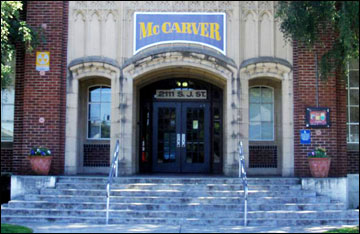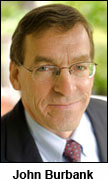OPINION
Let’s help homeless kids succeed, rather than international banks
By JOHN BURBANK
(March 25, 2015) — Our state’s public structures and services are the oil of our economic engine. From roads to bridges, preschool to college, veterans’ benefits to senior services, and protections for our air and drinking water, we’re all better off when we invest in strong communities.
But there’s a big red warning light on our dashboard: Low Oil. Washington state tax resources will fall $4.5 billion short of the amount needed to adequately fund schools, health care, child care, and other important investments in the next two years, according to projections from the state Economic and Revenue Forecast Committee.
Hundreds of special corporate tax giveaways now riddle Washington’s tax code. We’re losing billions we could be investing for the common good. Meanwhile, the taxes that remain fall much harder on the little guy, while leaving the wealthy alone: the bottom 20% pay 17% of their income in state and local taxes, the middle 20% pays 10%, and the top one percent pays a mere 2.8%.
It’s tempting to look for a single “silver bullet” — like wholesale tax reform — but given the political barriers, perhaps a more successful (albeit slower) approach is to use “silver BB’s,” that is, take concrete steps toward small solutions that add up to something bigger.
For example: there are more than 30,000 students in Washington’s K-12 schools who are homeless. (That’s the equivalent of all the kids in the Everett, Lake Stevens, and Burlington-Edison schools, combined.) Imagine how hard it is for these children to get to school, stay in school, and earn good grades. Every child should have the doors of opportunity and advancement wide open in front of them — but fewer than half of homeless kids graduate from high school in four years, and almost three times as many drop out compared to kids with homes.
 Local legislators have written a bill that will make it easier for homeless families to find and keep stable housing and keep their kids in the same school all year long. Rep. Jake Fey (D-Tacoma) and 26 other representatives are sponsoring HB 1682. It replicates an innovative and successful project at Tacoma’s McCarver Elementary School where students and their families are housed in nearby public housing.
Local legislators have written a bill that will make it easier for homeless families to find and keep stable housing and keep their kids in the same school all year long. Rep. Jake Fey (D-Tacoma) and 26 other representatives are sponsoring HB 1682. It replicates an innovative and successful project at Tacoma’s McCarver Elementary School where students and their families are housed in nearby public housing.
At McCarver, parents in participating families pay an increasing portion of the rent. They agree to participate in McCarver’s PTA, and they get assistance with job training and their own education. In 2006, the turnover rate for the whole school was almost double the number of students at the school (170%). That means that kids starting McCarver moved out of school in the middle of the year, and new kids moved into school, and then some of those kids left school as well. For the homeless kids in the new housing program, this rate has plummeted to below 10%. Their parents are earning more income. The proportion of kids reading at grade level has increased from 35% to over 60%.
We can begin replicating McCarver’s success across the state — which is what HB 1682 would do. It would cost about $10 million a year to develop similar programs in 15 school districts. But the money has to come from somewhere.
Fortunately, there’s a book that shows us exactly where to find it. The Washington Department of Revenue’s Tax Exemption Study notes 640 tax exemptions. Inside you’ll find any number of loopholes which the legislature could close to fund HB 1682. Here’s one: banks headquartered here that provide international banking services, as well as international banks with offices in our state, pay no taxes on income they receive from these financial transactions. It costs our state an estimated $16 million a year in lost tax revenue.
Closing just that one loophole would make it possible to dedicate the public resources to needed for HB 1682, funding education and housing projects in school districts around the state to open the door to a home and educational opportunity for homeless kids.
 Let’s call on our legislators to work for the powerless and homeless, even if, or maybe especially at the cost of a powerful banking lobby. It can be the first of many “silver BBs” aimed at securing the public revenue we need for education, health care, and economic opportunity and security for all.
Let’s call on our legislators to work for the powerless and homeless, even if, or maybe especially at the cost of a powerful banking lobby. It can be the first of many “silver BBs” aimed at securing the public revenue we need for education, health care, and economic opportunity and security for all.
John Burbank is the executive director and founder of the Economic Opportunity Institute in Seattle. John can be reached at john@eoionline.org.





